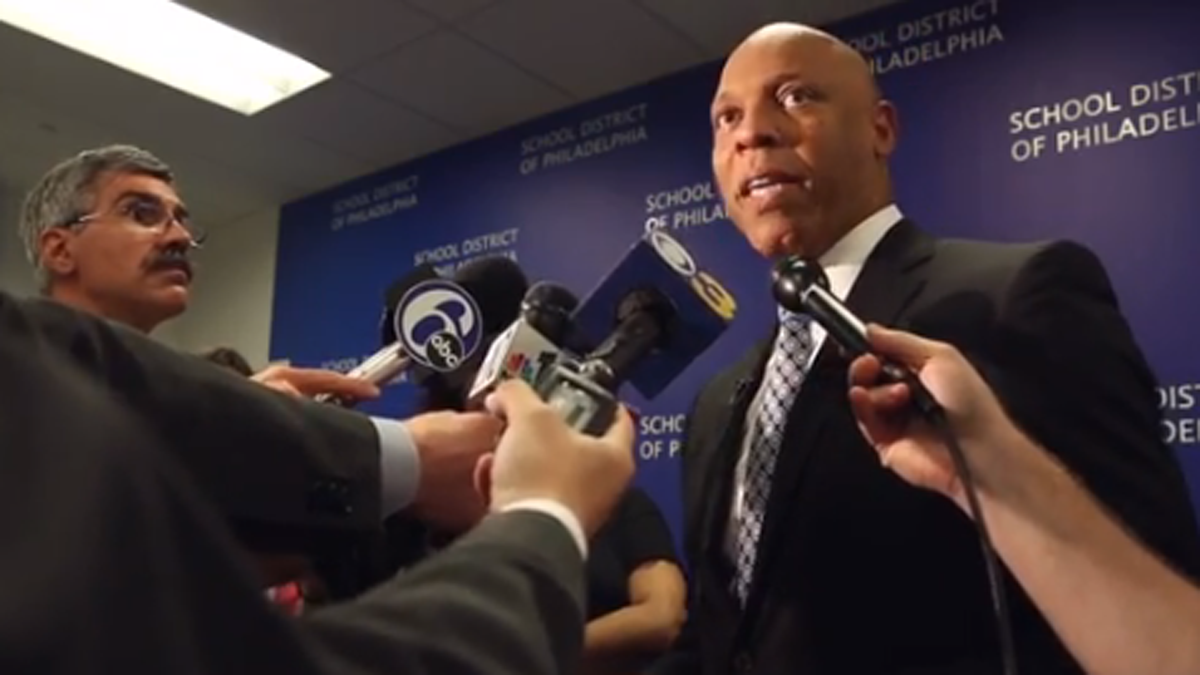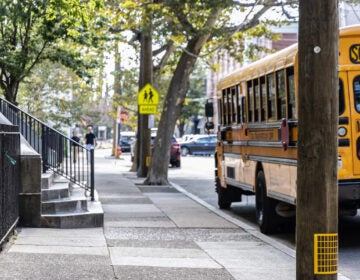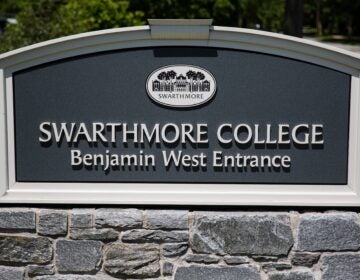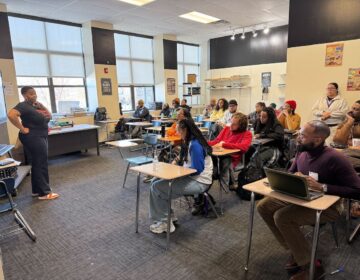Without cigarette tax, Philadelphia schools weigh drastic options
Listen
Superintendent William Hite at a news conference Thursday afternoon. (Electronic image courtesy of the Philadelphia Public School Notebook)
With its Aug. 15 decision deadline looming, the Philadelphia School District is holding on to a shred of hope that lawmakers in the Pennsylvania House and Senate will reach consensus on a cigarette tax bill that would generate badly needed school revenue.
Leaders in the House say that won’t happen, but in the mean time, the school district isn’t revealing the exact nature of its “plan-B.”
Here, though, are the leading options: lay off 1,300 staffers, including 800 teachers, and run a full school year where resources are skeletal and classrooms are packed to the brink.
Or, shorten the school year.
“If somebody is asking me to choose between a 180-day school year that is not adequate and, let’s pretend 150 days of adequately staffed schools, I’m going for the 150,” said Cindy Farlino, principal of Meredith Elementary in Queen Village.
Farlino says her school would be a mess with 40 students packed into each classroom. The rooms just aren’t big enough.
“A school that’s not adequately staffed is not a safe environment,” she said.
Principal Karen Thomas is leaving Cook-Wissahickon Elementary in Roxborough to take the reins at Bodine High School in Northern Liberties.
At current funding levels, she too supports a truncated school year.
“There has to be a major statement at this point about people’s priorities,” she said. “And the legislative priorities are very well established at this point. I mean, I don’t need any more information from them to know where they stand. They just don’t care. They don’t care at all.”
Thomas fears that the district’s ongoing fiscal crisis is doing long-term damage to the city’s overall economic health.
“I feel like we’re heading down the old Detroit highway,” she said.
The most dramatic and attention-getting way to shorten the school year would be to delay its opening.
But, if necessary, parents would prefer the district to open schools and run them with appropriate staff levels until the money runs out in, say, March or April.
No matter how it’s done, shortening the school year would pose a logistical nightmare.
What would parents do with kids while they’re at work? Would students receive enough academic credit to progress to the next grade? To graduate? How exactly would school staff see their pay diminished?
The district isn’t answering these questions yet, but the House’s inaction on the cigarette tax has forced a larger question: Is it safer for the city’s kids to come to schools with minimal staffing levels, or to have them stay home with who knows what level of supervision?
“Neither option is appropriate or acceptable. They’re both outrageous, and people should be very upset about it,” said Helen Gym, founder of Parents United for Public Education.
If additional funding doesn’t become available, Gym said, the district should sue the state to ensure schools receive enough money to operate adequately.
“It’s clear that the legislature has both the duty and the ability to allocate the money that’s necessary for the schools to open. And whether they’re going to do it based on responsibility and will, or whether they’ll have to do it by force through legal action, as they found out in 2012, for example, in Chester Upland – when a federal court forced them to keep schools open and running – that’s a bridge that we’ll have to cross,” Gym said.
If the district chooses to shorten the year, it may find itself in a legal battle with the state anyway.
Asked about the prospect of the Philadelphia School District not meeting the state’s 180-school day requirement, Tim Eller, spokesman for the state Department of Education sent this response:
“The district could lose subsidy for each day short of 180. Under the Public School Code, the superintendent, as a commissioned officer, is required to ensure that 180 days are offered to students by June 30.”
Eller did not respond to a request for clarification of exactly how much the district would stand to lose per day.
District spokesman Fernando Gallard stressed that the district has not yet formulated its plan for the upcoming school year.
As of now, schools are scheduled to open on Sept. 8, and the House is scheduled to reconvene from its summer break on Sept. 15.
Even if schools open on time, Science Leadership Academy principal Chris Lehmann worries how his students are responding to Harrisburg’s summer of inaction.
“How do you convince a child that education is valuable when it is clear that the politicians of our state don’t value them?” Lehmann said. “I worry deeply that that is the message that will be sent if the funding isn’t restored.”
WHYY is your source for fact-based, in-depth journalism and information. As a nonprofit organization, we rely on financial support from readers like you. Please give today.





